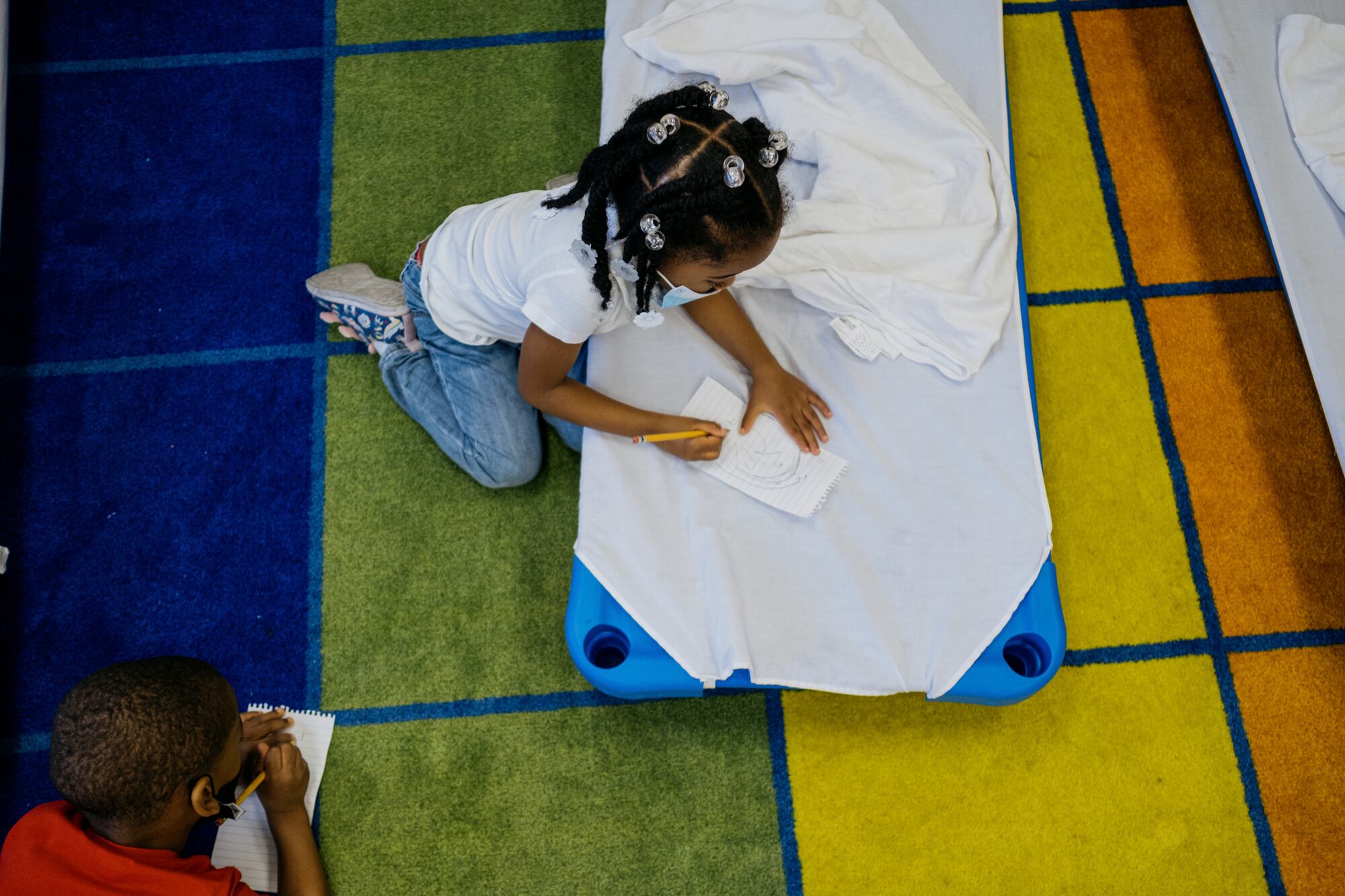It’s going to get even harder for child care centers to hire enough staff and keep their doors open now that lawmakers have cut early childhood funding from a major federal spending proposal, advocates and child care providers say.
While some say they’ll continue to hold out hope for a last-minute change, time is running out. The Senate is expected to vote on the $433 billion package, officially known as the Inflation Reduction Act, this week.
The bill — if passed in its current form — represents a major defeat and disappointment for early childhood supporters, who until recently believed they were on the cusp of a new era of government investment in young children. Last fall, President Joe Biden proposed unprecedented new funding for child care and preschool in his $2 trillion Build Back Better package. But the plan foundered in December after Democratic Sen. Joe Manchin objected, and Republicans were unified against it.
The current slimmed-down proposal, which Manchin helped negotiate, devotes most of its spending to clean energy, climate efforts, and lower prescription drug costs.
“It’s not reflective of what’s truly important to us as a society: How do we care for our children and the caregivers that keep them going,” said Melissa Mares, director of early childhood initiatives for the Colorado Children’s Campaign, a Denver-based advocacy group.
A July letter from 26 national organizations warned lawmakers that omitting early childhood aid from the bill would push the early learning system closer to “a catastrophic funding cliff that will affect America’s entire economy.”
Johnnie Bennett, who runs a small home-based child care program in Detroit, worries she’ll feel the impact of the stripped-out child care provisions as soon as next year.
Almost all of the families she serves rely on state child care subsidies that shot up thanks to COVID-19 funds, allowing her to give her teachers raises that in some cases reached 40%. Bennett hoped the federal government would fill in the gap when current funding runs out in 2023.
“We’ve been able to pay our teachers a lot more,” she said. “Now we’re going to be faced with losing teachers. Nobody is going to take a pay cut.”
Early childhood advocates elsewhere fear the same scenario.
In Colorado, the expiring federal money represents a $600 million funding cliff, said Mares.
“The state has done everything in its power to really use the stimulus money strategically … but there’s only so much we can do without federal money.”
Mares said it’s possible lawmakers could increase the federal block grant that pays for child care subsidies during the next budget appropriation process, but it won’t be transformative the way Build Back Better would have been.
Julissa Cruz, director of community based advocacy at the Carole Robertson Center for Learning in Chicago, said expiring COVID stimulus funds will exacerbate old problems, from low wages to a shortage of slots.
“We may be faced with a reality in which providers are not able to pay a fair wage or may not be able to increase their staff’s wage to be competitive with other employers in the market.”
While the Illinois state budget included a 10% boost to the state’s early childhood grant — raising the budget line to $598.1 million — without an additional federal investment, Cruz predicts that some small childcare providers will have to close as costs continue to increase.
Along with the prospect of federal stimulus aid for childcare ending, the country is seeing a historically high inflation rate of 9.1%. Cruz says that inflation puts families under a financial strain, especially those who have low incomes and few options for childcare.
Cruz knows this from her experience of working with families at the Carole Robertson Center for Learning who are largely low-income and are eligible for the state’s child care assistance program to reduce childcare costs. This program is a large help to families who are unable to work virtually or stop working to stay home with their young children. However, if a parent decides to take a higher wage job, the family could lose eligibility to receive that assistance.
Despite dashed hopes for child care and pre-K funding, there’s one key early childhood provision from Biden’s original plan that could resurface in different legislation later this year.
That’s the expanded child tax credit, which expired in late 2021. It gave parents up to $300 a month per child for children under 6, and up to $250 a month for children from 6 to 17. It was widely credited with dramatically lowering the country’s child poverty rate while it was in place.
The tax credit, which the American Rescue Plan made available to the nation’s lowest-income households for the first time, could still reappear in an end-of-year tax deal, the New Republic reported.
Ann Schimke is a senior reporter at Chalkbeat. Contact Ann at aschimke@chalkbeat.org. Samantha Smylie is the state education reporter for Chalkbeat Chicago. Contact Samantha at ssmylie@chalkbeat.org. Koby Levin is a reporter for Chalkbeat Detroit. Contact Koby at klevin@chalkbeat.org.






